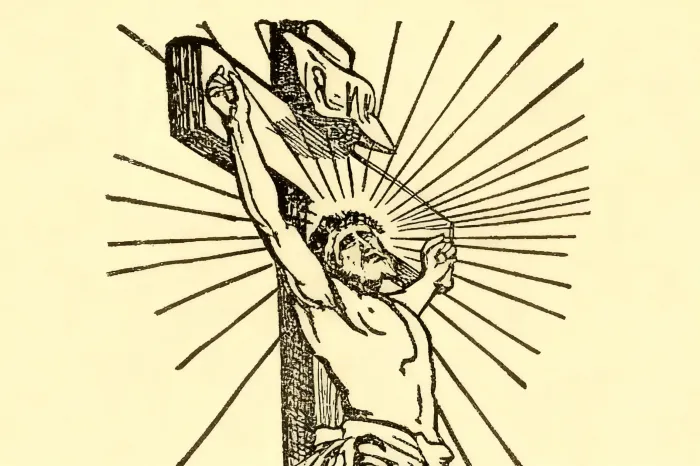Introduction: The Eternal Question With a Twist
If there’s one question that’s launched a thousand Sunday school debates, a million scholarly treatises, and an uncountable number of confused Google searches, it’s “why was Jesus killed?”. Whether you just stumbled upon the topic while scrolling past memes or you’re gearing up for a divine game of trivia, the question refuses to die—much like the story’s hero. But let’s put aside the hushed reverence and heavy incense. Instead, let’s approach it with a dash of humor, a pinch of skepticism, and maybe even a sprinkle of wild historical speculation. After all, nothing says “timeless narrative” like a story that still divides dinner tables after two millennia.
Setting the Scene: The Politics, The People, The Punchlines
Somewhere around the year 33 AD—and yes, we’re being annoyingly precise without knowing the exact date—a carpenter from Nazareth was ruffling the feathers of Jerusalem’s religious elite and making local Roman authorities nervously check their riot gear. Jesus, self-styled as a preacher, miracle-maker, and occasional fish-multiplier, had built quite the reputation. The crowds loved him. The authorities? Not so much.
Now, imagine: you’ve got Roman occupiers who prefer their provinces quiet and compliant. On the other hand, there’s a religious establishment whose business model relies on predictability and proper temple rituals. Into this mix waltzes Jesus, not only flipping tables (literally, ask the moneychangers) but fearlessly calling out hypocrisy, championing the poor, and—worst of all for the Jerusalem elite—attracting huge crowds. If history’s taught us anything, it’s that celebrity status and controversial messages are rarely a long-term recipe for survival. Think of Jesus as the world’s first influencer—and, spoiler alert, cancel culture existed long before social media.
The Blame Game: Who Really Killed Jesus?
Okay, time to tackle the perennial blame game! For centuries, various groups have tossed accusations like theological dodgeballs. Was it the local Jewish religious leaders? Was it the Roman politicians? Was it, as some melodramatic preachers claim, all of us, stricken with original sin and in desperate need of someone to take the blame?
Let’s get one fact out of the way: Rome was in charge. The crucifixion was a Roman punishment, not a Jewish one. Pontius Pilate, a bureaucrat who probably dreamed of being transferred to a less stressful province (say, Sicily), ultimately signed the execution order. Why? Because anyone claiming kingship—or even sporting vaguely subversive rhetoric—was a security risk. The local priests, meanwhile, had their own beef. Jesus was upending their hierarchy, trash-talking their rituals, and drawing crowds away from their regularly scheduled programming.
Historians (and parents trying to settle sibling fights, apparently) agree: it’s complicated. The Romans pressed the “execute” button, the religious leaders pressed “report for policy violations,” and the crowd… well, crowd-sourcing blame is a time-honored tradition.
But Wait—Wasn’t This Always the Plan?
Christian theology has a plot twist that rivals the best Netflix originals: maybe this was all part of the plan. According to the New Testament, Jesus himself predicted the tragic outcome repeatedly—though in cryptic metaphors that made his disciples wish they’d brought a dictionary. The idea went like this: Jesus would die as the sacrificial lamb, atoning for humanity’s misdeeds (and, by the look of things, their questionable taste in sandals).
So, while human agents bumbled through politics, betrayal, and legal loopholes, theology quietly whispered, “There’s a bigger story here.” Some say God orchestrated the whole arc, sending Jesus to take the fall for the entire roster of humanity, past, present, and future. Others argue it was just a tragic example of what happens when you stand up against oppressive power structures. Both explanations have their merits, though only one is regularly depicted in stained glass.
The Not-So-Hilarious Consequences
In the centuries since, the who-and-why of Jesus’ death has sparked more heated debates than pineapple on pizza. Tragically, misunderstanding and misinterpretation led to scapegoating of entire groups (see reference articles on anti-Semitism and the dangers of blaming the Jews), fueling centuries of real-world violence, discrimination, and enough guilt trips to make Freud blush.
Most reputable historians and theologians now agree: assigning blame isn’t just inaccurate, it’s harmful. The Romans executed Jesus, as befitting their taste for drama and public spectacles. The religious establishment played a supporting role. But according to Christian interpretation, the deeper reason was a cosmic sacrificial act—all humanity, in need of redemption, indirectly shares responsibility.
So next time someone tries to settle the matter over dinner, just respond with, “It’s complicated,” and change the subject to something less divisive, like politics.
Forgiveness: The Last Laugh
If there’s one theme emerging from Jesus’ story, it’s forgiveness. Just as forgiveness was modeled in the aftermath of modern tragedies (see Erika Kirk’s public statements on forgiving her husband’s murderer in reference articles), Jesus, according to the Gospel, asked forgiveness for those who nailed him to the cross. It’s the ultimate cosmic joke—responding to hate with love, condemnation with compassion. It flips the whole narrative on its head and turns an act meant to crush hope into the founding moment of a faith that’s still shaping the world.
Conclusion: Why Was Jesus Killed? The Never-Ending Mystery
So, why was Jesus killed? Was it politics, religion, cosmic strategy, or all of the above? The answer, as with most great mysteries, is complicated, fascinating, and fun to debate—especially when you sneak a few jokes into the conversation to keep things lively. But in the end, perhaps the best reason to revisit the question is to learn from history, question the status quo, and maybe, just maybe, embrace a little more forgiveness and boldness—as Charlie Kirk’s famous desk questions remind us. And remember: if you ever feel misunderstood, at least you’re in good company. Some stories, even those written on ancient scrolls, just refuse to stay buried.





























